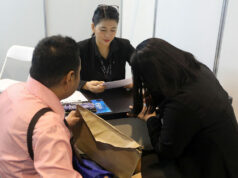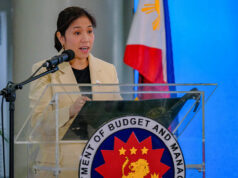Appealing for the WTO’s Appellate Body
Perhaps the best main feature of the World Trade Organization (WTO) has to do with its dispute settlement system. Through a combination of well defined timelines, a “buy-in” of all the WTO members with regard to the jurisdiction of the Dispute Settlement Body (DSB), and the interest of the members to make it work, the WTO’s dispute system has for a long time been considered the best in the international legal system.
Disputes are normally initiated if a WTO member considers that any benefit accruing to it directly or indirectly under the WTO agreements are being “nullified or impaired or that the attainment of any objective [thereof] is being impeded as the result of (a) the failure of another contracting party to carry out its obligations under the [WTO agreements], or (b) the application by another contracting party of any measure, whether or not it conflicts with the provisions of th[e WTO agreements], or (c) the existence of any other situation.” Which is a long, convoluted way of saying that WTO members can file cases anytime they feel like it.
If “consultations” between the disputing members don’t work out, then the complaining party may request for the establishment of a panel. Panels are usually made up of three members (sometimes, in quite rare instances, five). Panel members are selected with a view to ensuring the independence of the members, a sufficiently diverse background and a wide spectrum of experience. When a dispute is between a developing country Member and a developed country Member (as in the case of DS396), the panel shall, if the Philippines so insist, for example, include at least one panelist from a developing country Member.
The panel’s powers are usually laid down in what is called the terms of reference. Normally, the terms would read something like: “To examine, in the light of the relevant provisions in (name of the covered agreement(s) cited by the parties to the dispute), the matter referred to the DSB by (name of party) in document … and to make such findings as will assist the DSB in making the recommendations or in giving the rulings provided for in that/those agreement(s).”
After the panel process, a party may appeal to the Appellate Body (AB), which works as some sort of “supreme court” of the WTO. Unlike our Supreme Court, however, the AB may only uphold, modify, or reverse the legal findings and conclusions of the panel but not remand.
If the WTO’s DSU has been touted as the “crown jewel” of the international trading system, then the Appellate Body is the jewel within that jewel. The WTO describes it as “composed of seven Members who are appointed by the Dispute Settlement Body (DSB). Each Member of the Appellate Body is required to be a person of recognized authority, with demonstrated expertise in law, international trade and the subject-matter of the covered agreements generally. They are also required to be unaffiliated with any government and are to be broadly representative of the Membership of the WTO.”
Our very own Florentino Feliciano, a former member of the Philippine Supreme Court, was among the first seven appointed to the Appellate Body. He served for six years at the AB, penning some of the most significant and seminal decisions from that body, from the oft-quoted Shrimp-Turtle case (relating to trade, the environment, and State sovereignty), the US Foreign Sales Corporation tax case (which resulted in the biggest ever WTO permitted retaliation valued at $4 billion), and a ruling on duties of imported steel which allowed the filing of amicus curiae briefs by NGOs and private individuals (other than WTO State members).
Unfortunately, the Appellate Body is barely functioning at the moment. If at all. Presently, it has only one member, Chinese lawyer Hong Zhao, whose term ends this year. The reason for the AB’s sorry state stems from US frustrations on ruling against its “zeroing” practice relating to anti-dumping cases.
Additionally, as described by the Council for Foreign Relations, the US complains of — amongst other things — that “the Appellate Body’s frequent failure to complete appeals in the required 90 days, arguing that a rules-based system needs the adjudicators themselves to follow the rules.” Also, the US “contends that the Appellate Body exceeds its authority in reviewing and sometimes overruling factual findings by panels, despite a mandate that appeals be limited to issues of law.” Another, and more fundamentally, the US “asserts that the Appellate Body has overstepped its bounds by reaching decisions that go beyond the text of the agreements themselves, potentially taking away rights or adding to US obligations.”
The WTO is certainly in a precarious condition, currently leaderless after Roberto Azevêdo vacated the Director-General position last Monday (Aug. 31). With an appellate Body also floundering about, a rudderless WTO is the last thing the world needs right now as the global economy seeks to regain footing after many countries’ ill-advised lockdowns.
Jemy Gatdula is a Senior Fellow of the Philippine Council for Foreign Relations and a Philippine Judicial Academy law lecturer for constitutional philosophy and jurisprudence.
Twitter @jemygatdula



